Hi Susun,
Can you tell me some things about the Wise Women Way tradition and how its different from other health care traditions? How did you find your own way to it? Thanks.
Susun’s response:
The Wise Woman Tradition is the oldest known healing tradition on our planet. It offers a unique view of health that is woman-centered and deeply empowering to women. This is in stark contrast to orthodox – and most alternative – healing traditions, which are based on male viewpoints which disempower women.
The medicine I learned in school was based on a linear, scientific, male worldview whose truth I did not question. When this medicine failed me, as a woman and a mother, I sought alternatives. Herbs helped me take care of myself and my family, simply and safely, but I questioned the assumptions behind what I was taught. It was clear to me that alternative health care disempowers women as much, or more than, orthodox medicine does. They both actively assume that the norm on which assessment of health is to be based is masculine in gender.
Assuming that a healthy male is the definition of health may not seem like much of a problem, unless you are a woman. This core assumption has hurt, and continues to hurt, women in a multitude of direct and indirect ways, from the deeply personal to the widely political. This assumption leads to attempts to “correct” – with drugs and surgery – physical and emotional states that are normal (and healthy) for women, but not for men.
Consider: Healthy women were given DES (a hormone) simply because they were pregnant – their offspring are cancer-prone.
Millions of menopausal women have been (and are still) treated with hormones in an effort to replace what is “lost.” Does this improve their health? No. Use of hormone replacement increases the risk of stroke, heart disease, and breast cancer.
Menstruating women need some quiet time alone. Instead they are offered pink Prozac to help them overcome their “depression.”
Women are advised to have their uterus (and increasingly their ovaries, too) removed since they are “not needed after menopause … just places that can harbor cancer.” It is well known that a woman’s sexual response is unlikely to be as strong, and may even be lost, when she loses these vital organs. A century ago, a woman who challenged male authority could be diagnosed as “hysterical” and her uterus (“hyster”) removed (often without anesthesia or disinfectants).
There is more to medicine than the male perspective. I speak for the woman-centered tradition. It offers men and women a new way to think about and create health in all stages of their lives. It empowers women to take charge of their health and their lives, to honor and respect themselves, and the earth. I call it the Wise Woman Tradition.
The Wise Woman Tradition empowers women by:
• Focusing on simple remedies that are easily accessible
• Sharing information freely
• Offering compassionate listening
• Renaming her weaknesses as strengths
• Reminding her that her body is the body of the earth, is the body of the goddess, is the sacred ground of being.
The Wise Woman Tradition empowers women to:
• View themselves as healthy, even when they have problems
• Create their own healthy norms
• Honor their natural cycles and changes (puberty, menses, pregnancy, menopause)
• Define themselves from a woman-centered viewpoint
• Connect with other women for personal and planetary healing
Much of modern medicine seems complicated and difficult to understand. Many alternative remedies are also complicated, some are unduly expensive, others require special training and initiations. This disempowers women. The Wise Woman Tradition, by focusing on simple remedies that are easily accessible, and by sharing information freely, allows women to feel competent and powerful in taking care of their own health.
The Wise Woman Tradition heals by nourishing the wholeness of each unique individual. Nourishing has three primary aspects: simple ceremony, nourishing foods, and compassionate listening. When women are heard, when we listen to each other, then we feel validated and empowered. Harking back to the consciousness-raising sessions of the 1970’s, and informed by Native American teachings of the talking stick, compassionate listening reshapes women’s stories so they can reshape their lives.
One of the great gifts of the Wise Woman Tradition is the renaming of our weaknesses as strengths. When we allow ourselves to be depressed, outraged, yearning, grief-stricken, confused, fearful, bitchy, and more; when we allow all that we are to be part of us, then we can finally find and celebrate our wholeness/health/holiness.
The Wise Woman Tradition empowers women by reminding us that we are sacred, that our bodies are sacred. As women, we are the earth. Each one of us lives in the body of the earth. Each one of us comes from this sacred ground of being. And not only are we empowered to honor ourselves, we are empowered to demand that respect from all others.
When women accept orthodoxy’s image of them as constantly in need of help, they accept a powerless position. When women accept the Wise Woman Tradition’s assertion that they are already perfect, already vibrantly healthy, even when they have problems, they assume a position of power. When women create their own healthy norms, they create a place of power in which they can stand, no matter how fast and furious the changes.
When women believe that their natural cycles and changes (puberty, menses, pregnancy, menopause) are somehow sick or wrong, they open themselves to medical experiments. When women learn that the Wise Woman Tradition honors these states above all others, they find a source of deep wisdom and great power flowing into their lives.
When women define themselves from a male-centered viewpoint, they always loose. When they define themselves from a woman-centered viewpoint, they always win. The Wise Woman Tradition offers this power to women, from the Ancient Grandmother’s heart to yours.
Green blessings, Susun Weed
photos: Wise Woman Spiral © iStockphoto.com / Chuck Spidell | Root Chakra Buddha Girl © 2005 Susan Shie

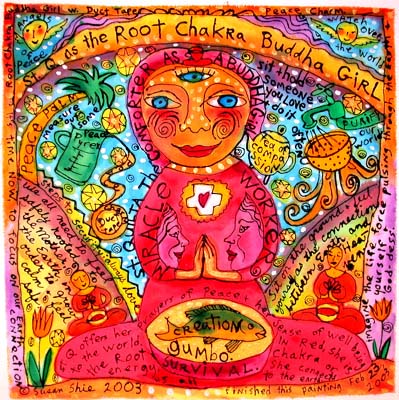
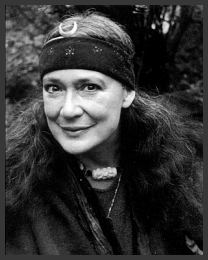
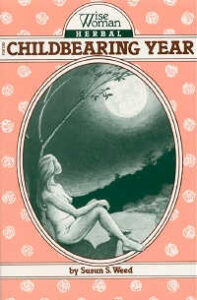
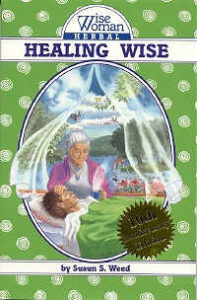
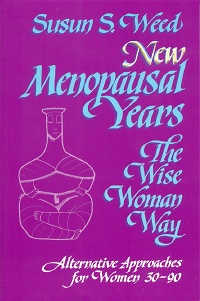
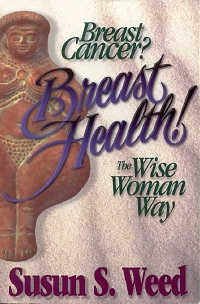
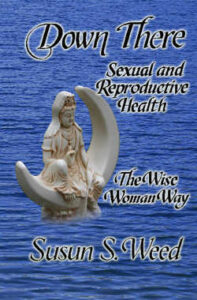
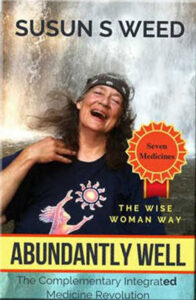



0 Comments